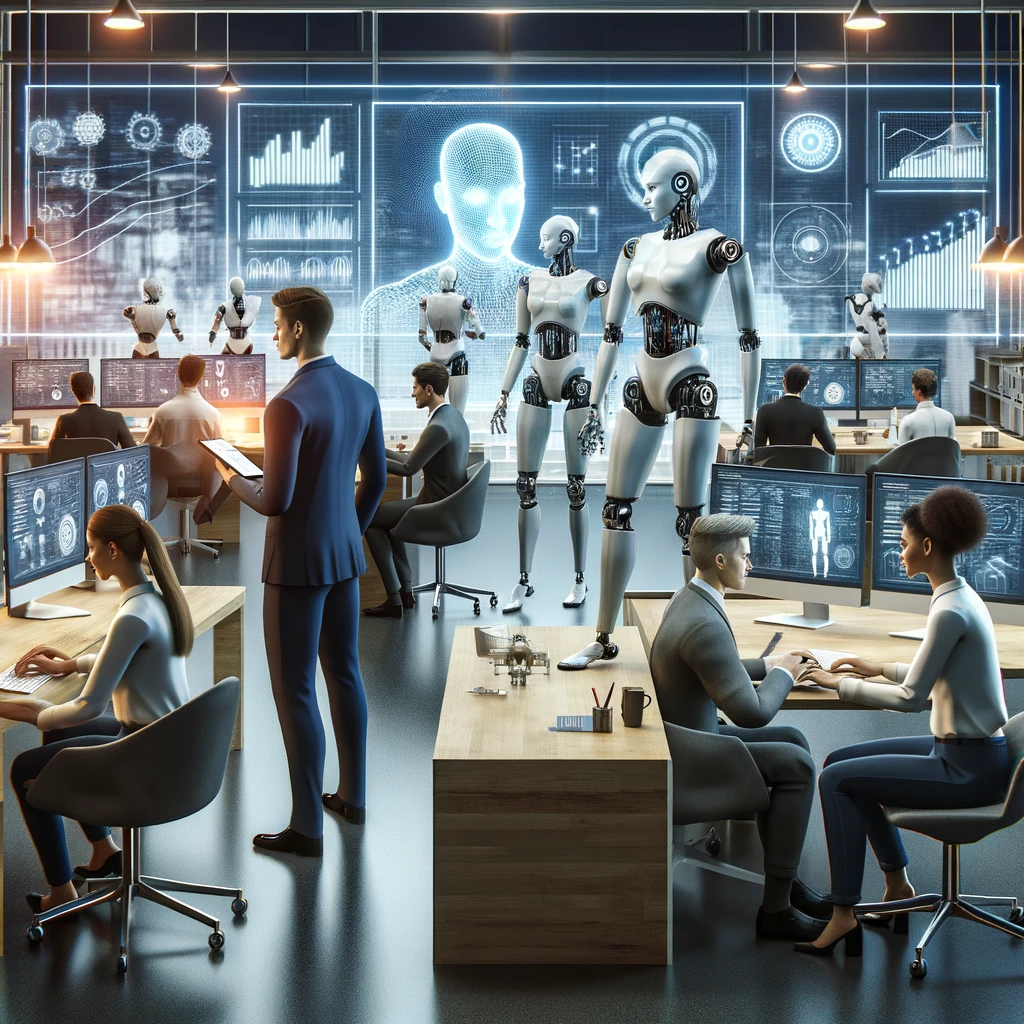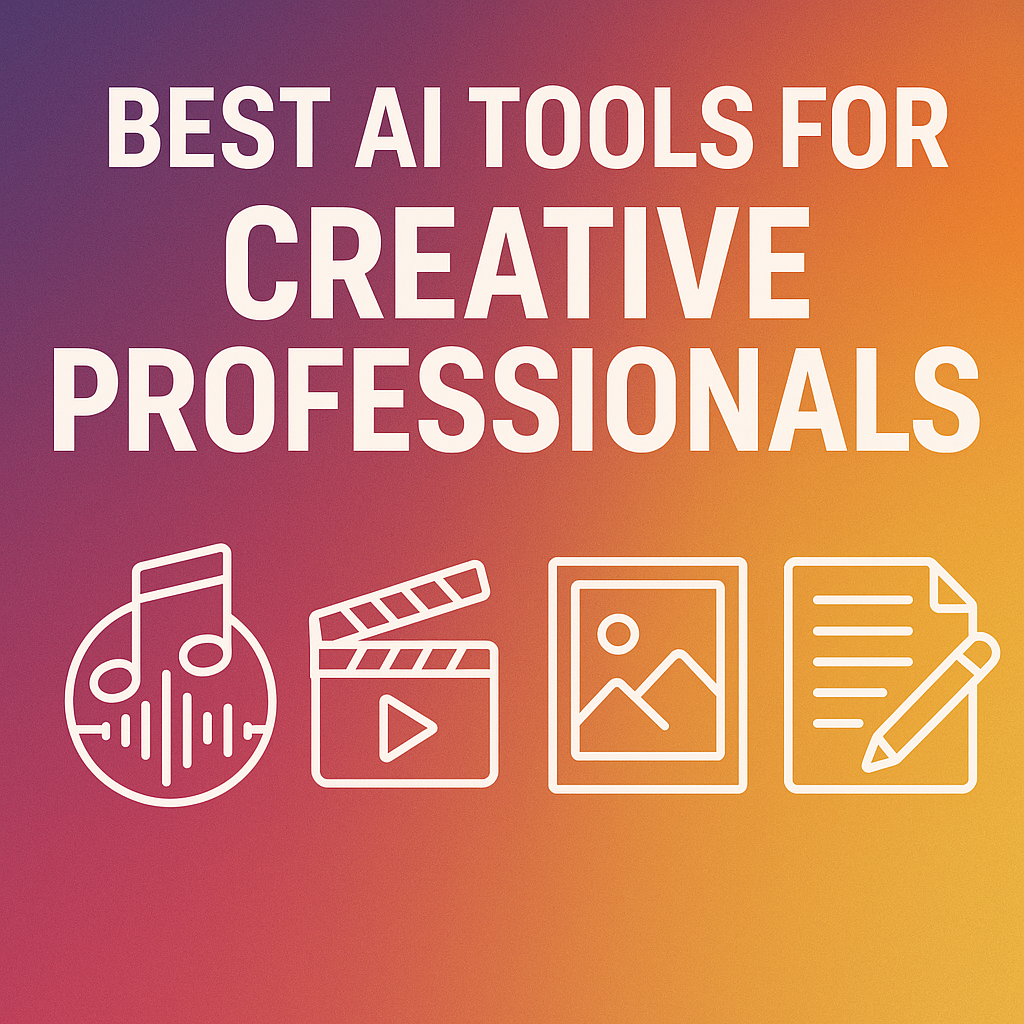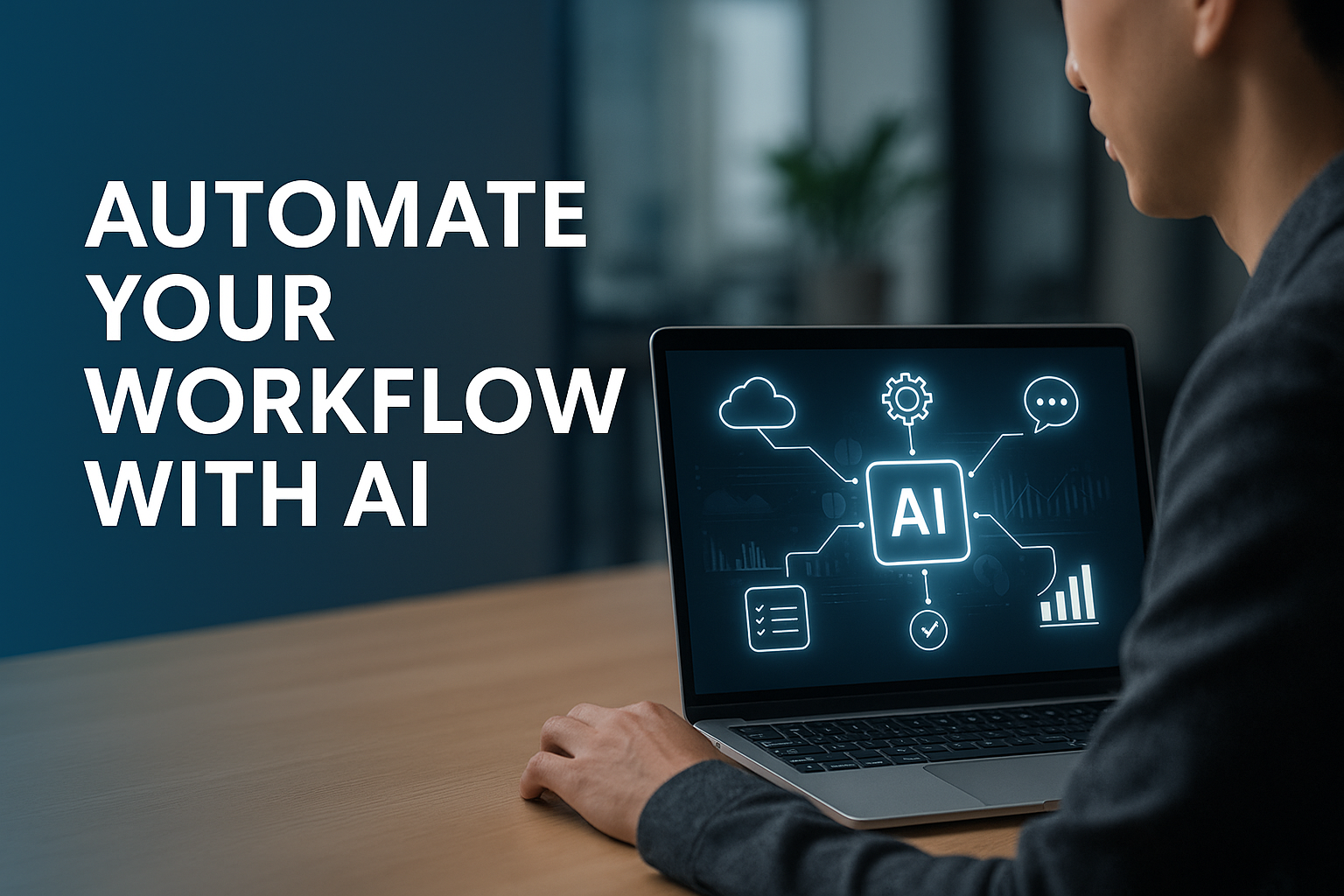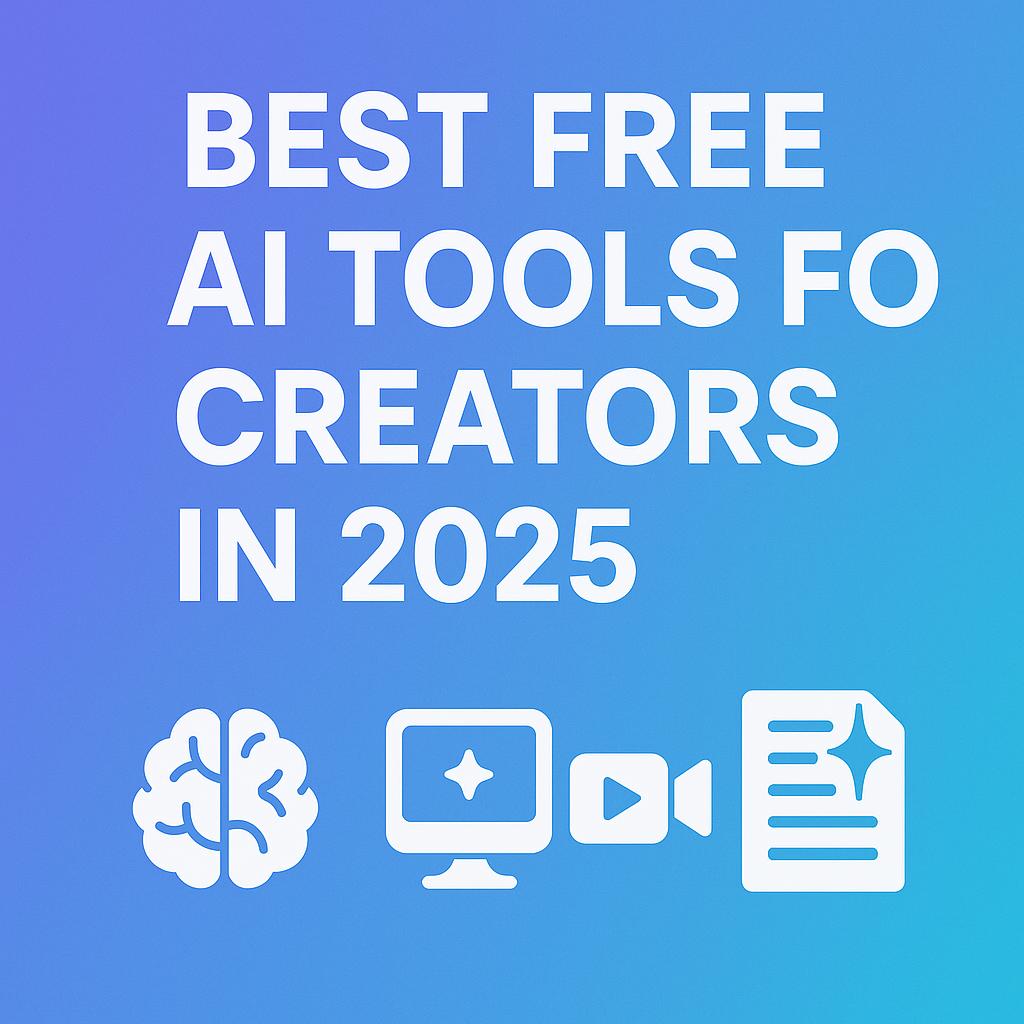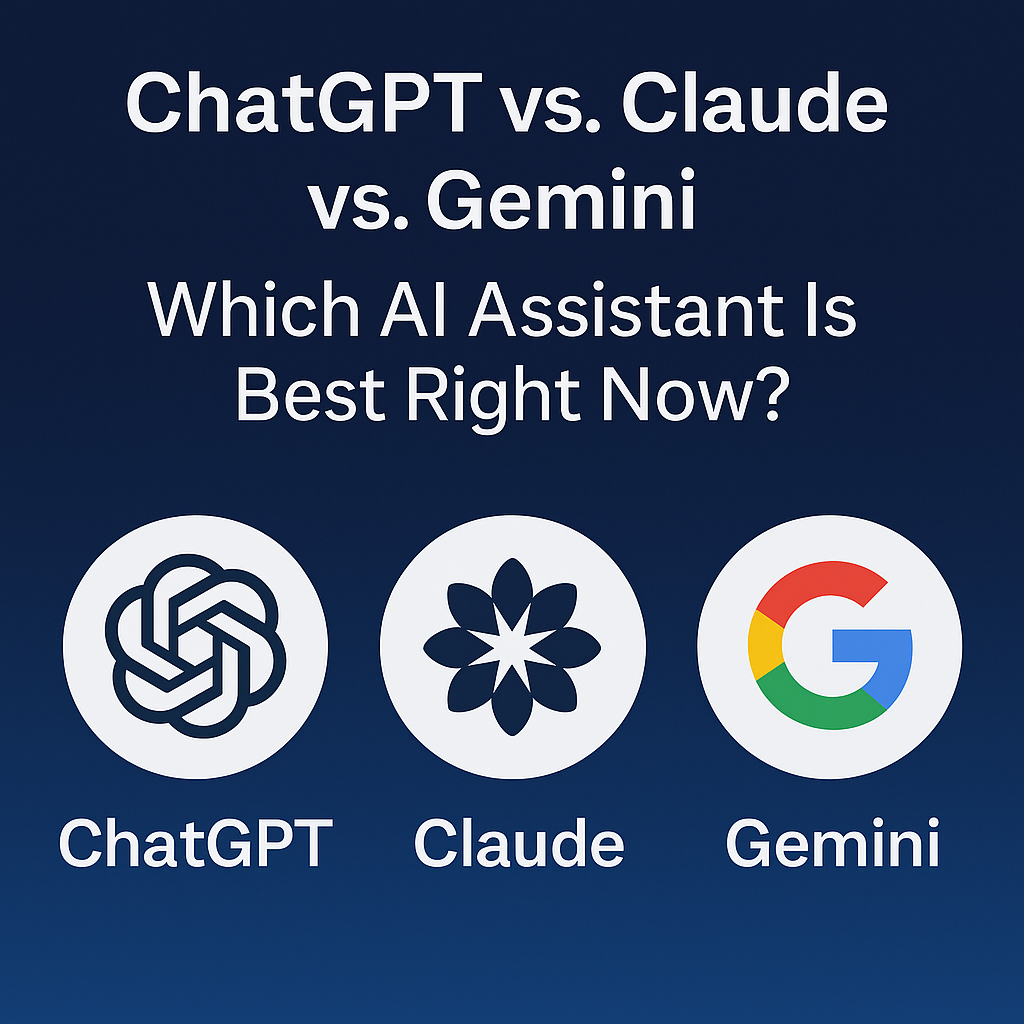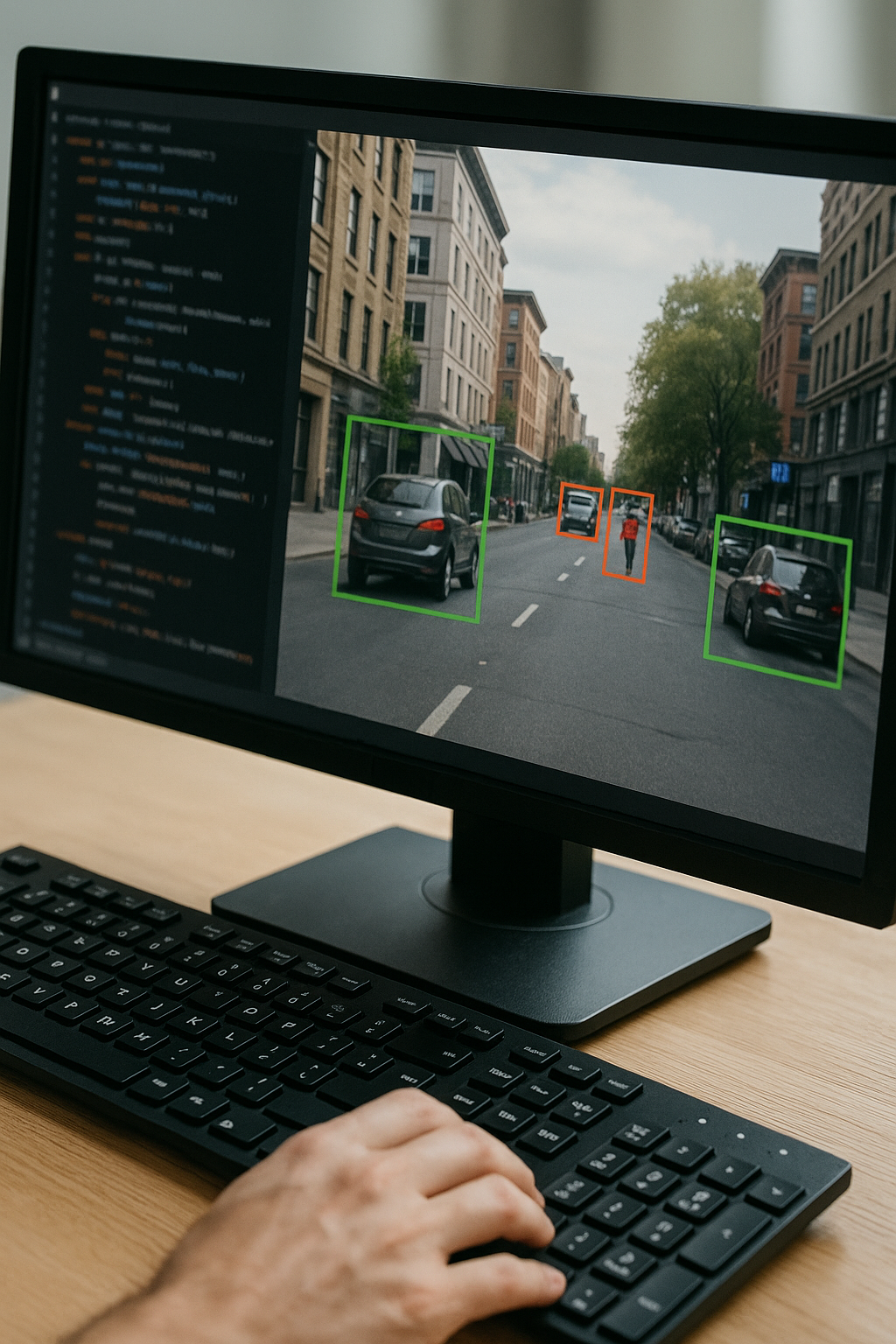AI and the Future of Work: Embracing Change
January 11, 2024
Discover how Artificial Intelligence (AI) is revolutionizing the future of work with in-depth insights and real-world case studies. Learn about the transformative impact of AI on various industries and the workforce.
Artificial Intelligence (AI) is not just reshaping technology; it's redefining the future of work. As AI technologies evolve, they are transforming job roles, workflows, and industry landscapes. This blog post delves deeper into AI's transformative role, supported by real-world case studies and expert insights.
AI Transforming Workplaces
AI's integration into the workplace is transforming how businesses operate and compete. From automating routine tasks to optimizing complex processes, AI's influence is far-reaching.
Key Areas of Impact
- Automation of Routine Tasks: AI's capability to handle repetitive tasks is reshaping roles and workflows. Case Study: Adobe's AI-powered Sensei streamlines design tasks, analyzing design trends, and suggesting improvements, enhancing productivity for designers.
- Enhanced Decision Making: AI's analytical prowess aids in strategic decision-making. Case Study: Starbucks uses AI to analyze customer preferences and local market data, optimizing product offerings and store locations.
- New Career Opportunities: AI's evolution is leading to new, specialized roles. Case Study: Salesforce's Einstein AI has created a demand for Salesforce AI specialists who can integrate and leverage AI in customer relationship management.
Challenges and Opportunities
- Skill Gap: The evolving AI landscape requires new skills. Case Study: AT&T's Workforce 2020 initiative focuses on retraining its workforce in areas like data science and cybersecurity, highlighting the importance of upskilling.
- Job Displacement Concerns: AI's potential to automate jobs poses challenges but also creates new opportunities. Case Study: IBM's Project Debater showcases AI's potential in augmenting human decision-making rather than replacing jobs.
- Workplace Efficiency: AI's automation capabilities lead to efficiency and productivity gains. Case Study: Google's DeepMind AI reduced energy usage in data centers by 40%, exemplifying AI's efficiency benefits.
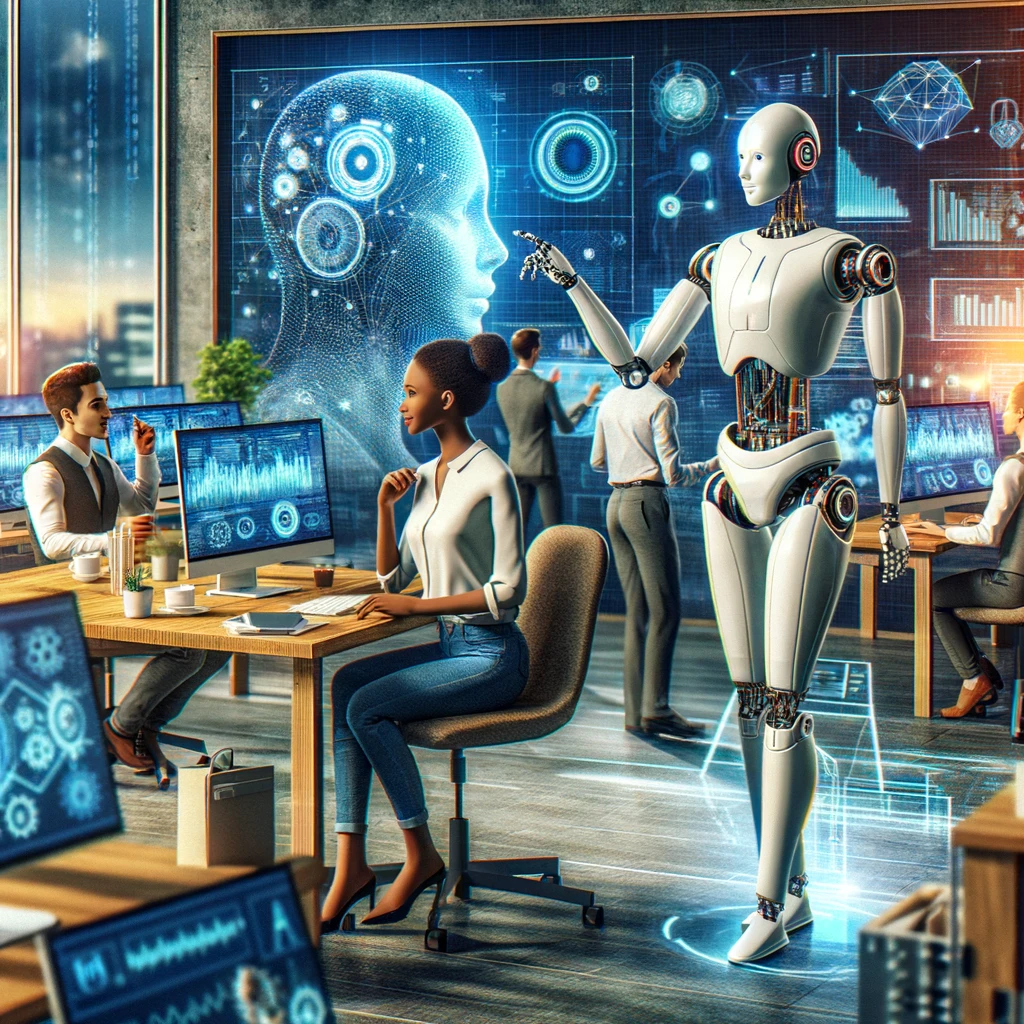
The Human-AI Collaboration
The future workplace is not about AI replacing humans but AI collaborating with humans. Case Study: Accenture's "New Skills Now" initiative emphasizes the importance of developing skills for human-AI collaboration, preparing employees for the future workplace.
Ethical Considerations of AI in the Workplace
As AI becomes more prevalent, addressing ethical concerns is crucial. Case Studies: Microsoft's AI ethics committee and IBM's AI Ethics Board focus on ensuring AI is developed and used responsibly, setting industry standards.
Conclusion
AI's role in the future of work is transformative and multi-dimensional. By understanding and embracing AI, professionals and organizations can unlock new opportunities for growth and innovation. The AI-driven workplace is not just a trend; it's the new reality, bringing with it a wave of change that we must navigate with foresight and adaptability.
Remember to sign up for our newsletter to always stay updated on all the AI news!
